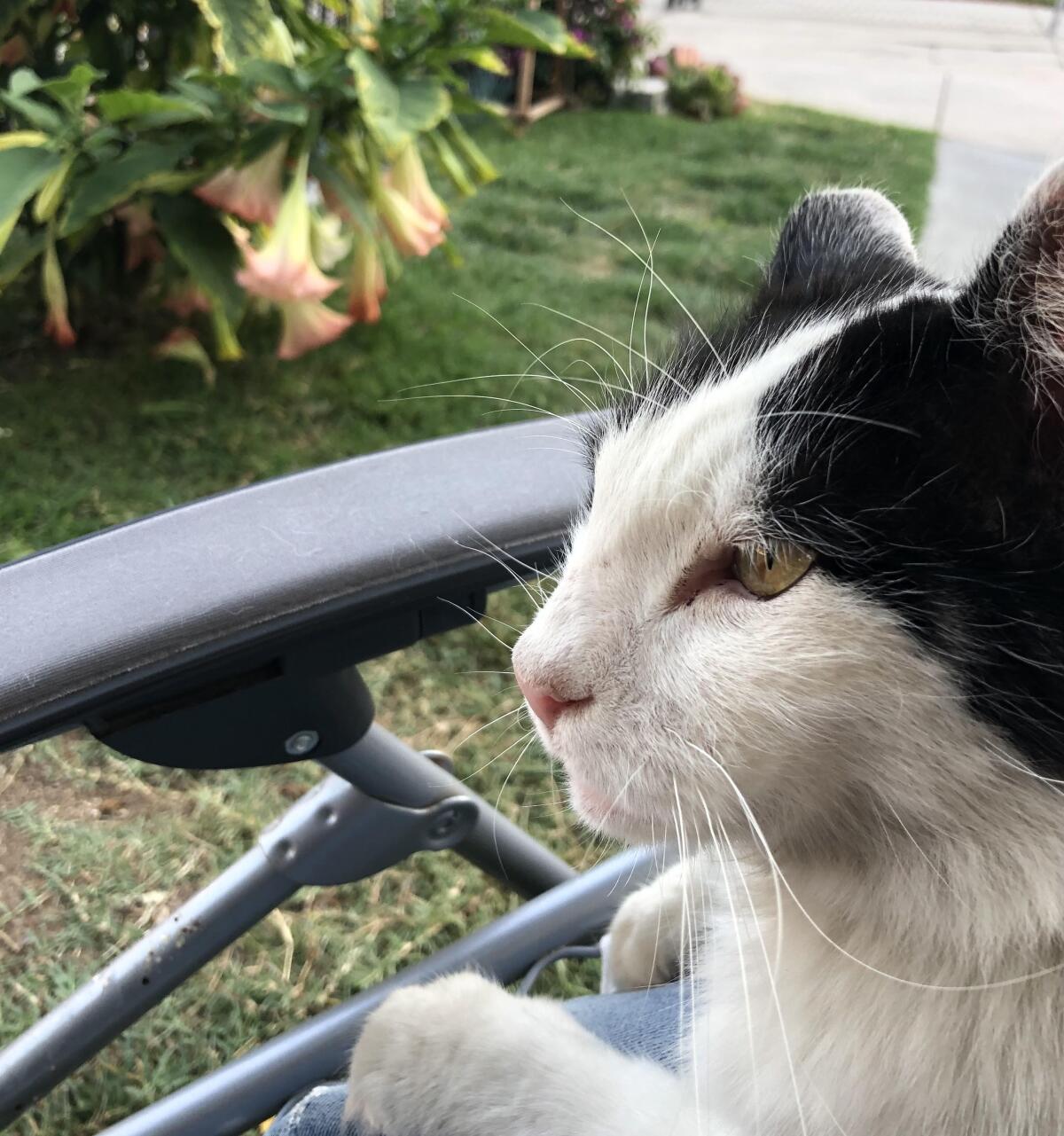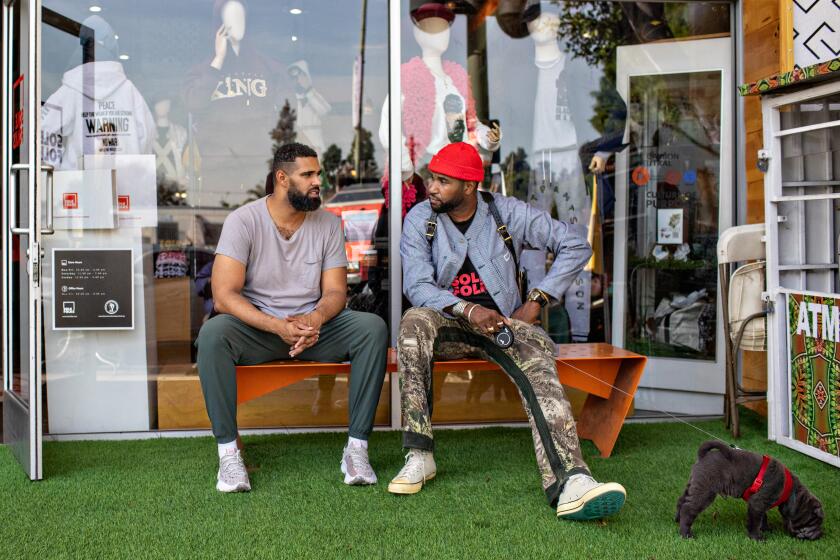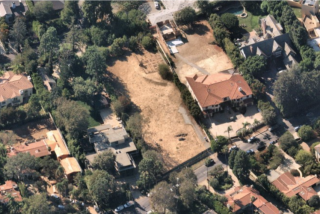Op-Ed: His cat, his house, his neighborhood gone

- Share via
“Cash for houses” — you see the signs on telephone poles in humble neighborhoods all over the city. Including where I live, a quiet enclave by the L.A. River, an even blend of working-class Asians, Latinos and artsy types of all ages. Many nearby homes have been in the same family for decades, with different generations living in them. Owners might be sitting on a million-dollar asset, but they still leave at dawn to go to work.
I lived in New York for 41 years before moving to Los Angeles three years ago. I saw that city’s constant transformation. One minute something was there and the next it was not. Everywhere I looked I saw ghosts. Too young to be old and too old to be relevant, maybe I was becoming a ghost too. At least in L.A. I didn’t personally know any ghosts.
I found a small house with a garden to rent so that I could spend time outside, somewhere peaceful where I could be a semi-recluse and write and draw.
A pitiful guava tree in the front yard seemed to be crying for attention. I collected manure along the horse path by the river and made a kind of tea with it that I fed to the tree. It thrived and became a nesting site for hummingbirds and praying mantises. Neighbors came over with other kinds of fruit from their yards to exchange for guavas.
I am glad I made this cross-country move.
With $2 million from L.A. County, four business owners finally have enough to buy their building. It shouldn’t be this hard to build Black wealth.
Buster, a black and white cat, sits on a chair under that tree every day. Neighbors say he’s been doing this for 11 years. Buster’s owner is a slightly built but rough-looking man who lives around the corner. He is the sole occupant and caretaker of the house he grew up in, ownership now shared by multiple siblings.
The man is deeply tanned, with faded tattoos and long, gray hair. His eyes are a kind of yellow brown, like ochre. It’s hard to tell how old he is. He could be 45, he could be 60. He tells me he bottle-fed Buster when the cat was a tiny kitten. We have formed a kind of cat co-parenting friendship. He brings food over for Buster, who will leap off the chair whenever he hears the distinct sound of the man’s ancient truck.
Pointing in the direction of the river, Buster’s owner says he might be living over there soon. By majority rule, his siblings recently put their family house up for sale. They’re using a traditional agent though, not one of those cash-for-houses deals. Maybe the taxes and upkeep are an albatross. I don’t ask why.
Living with any of his siblings is not an option for the man who raised Buster. The split proceeds from the sale won’t leave much but he’ll have enough to get an RV. A used one. He’s not sure where he will go — maybe by the river or maybe somewhere else. He’s stoic but his ochre eyes tell another story. He’s sad, and scared. This will be some uncertain future.
An elderly woman in the neighborhood who has known the man since he was a child tells me she prays for him. I’m not religious but I look to Buster and the guava tree and wish hard that all goes well. I tell the man he should take the cat with him, but he says no, Buster belongs with the tree.
A friend asks why I care about this guy. Is it an attraction? No, nothing like that. The last thing I want is that kind of relationship with anyone. I’ve had enough for 10 lifetimes.
It’s more that his story makes me think about the value of “home” versus the value of property. I wonder about this man who doesn’t have much, and who is about to lose more. About humbleness. Especially at this time of year.
In the last couple of weeks, two houses at the end of my street have been gutted, undergoing renovations. The same thing is happening on the next street over.
The Taylor Yard Bridge is here, connecting the communities of Cypress Park and Elysian Valley.
Here we go, I sigh.
Old fruit trees have been cut down, soon to be replaced with gravel and drought-tolerant native plants. Smart landscaping, yes, but long-rooted orange and lemon trees don’t waste water, and avocado trees shade the street on triple-digit days.
On my walks, I count how many newly renovated houses have put up high walls and hedges. These newcomers come to conquer, I think, not assimilate. There will be no fruit-sharing with these people.
I recently had a conversation with a retired businessman who asked how I liked living in this area and proudly said his son was a real estate developer who was excited to have obtained several properties here, referring to the location as “iffy” in its current state. Iffy? My eyes narrowed into mean little slits.
Buster’s owner has given me two cuttings from the less common dark pink plumeria in his yard. I planted one near the cat’s chair. I put the other one in a terra cotta pot, transportable if I ever move. A souvenir of my soon-to-be first L.A. ghost.
Nancy Glowinski is a former global head of photography for Reuters.
More to Read
A cure for the common opinion
Get thought-provoking perspectives with our weekly newsletter.
You may occasionally receive promotional content from the Los Angeles Times.












